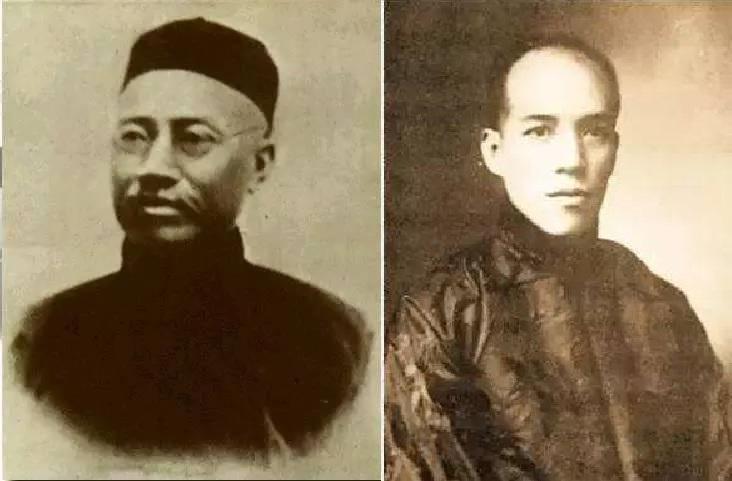A scholar shared how Chinese intellectuals viewed the complicated relationships among science, religion, and superstition in the early 20th century.
Recently, Mr. Huang Ko-wu delivered an academic lecture, titled “Rethinking of Science, Religion, and Superstition by Chinese Intellectuals in the Early 20th Century: Taking Yan Fu and Leung Kai Chiu as Examples”. Starting with the thoughts of Yan Fu and Leung Kai Chiu, he recalled the early 20th century to see how Chinese intellectuals at that time viewed science, religion, and superstition.
Mr. Huang Ko-wu, the distinguished research fellow of the Academia Sinica of the Institute of Modern History, suggested that to understand the content of his lecture, we should start with the concept of “secularization”. If we use “secularization” to describe the development of modern China, it can be said that it is an era when “science” was rising while “Confucian classics” was declining.
“Science, as the core concept of modern China, does not exist alone,” said Mr. Huang. “If you want to know science, you need to know some related concepts and at least think about them together with the mutually defined concepts such as religion and superstition to form a concept cluster.”
He believes that there are two reforming ideas in modern China, one of which advocates complete change, such as reformists Tan Sitong, Hu Shi, and Chen Duxiu. Another reforming idea advocates “adjusting thoughts”, which is mainly advocated by Yan Fu and Leung Kai Chiu. These two ideas are different in every way - goals, methods, and systems.
Mr. Huang concluded, “So, from the concept of secularization, we can say that the process of modernism in modern China can be regarded as the process of pursuing western democracy and science. Secularization represents a universal historical process.”
Yan Fu and Leung Kai Chiu, on the one hand, affirmed that democracy and science are needed by China; on the other hand, they affirmed the spiritual values of Confucianism, Buddhism, and Taoism. Their goal was to pursue the combination of Chinese and Western cultures, and they became the pioneers of Neo-Confucian. They both opposed the May 4th Movement, traditionalism, and scientism.
Yan Fu began to introduce the new world outlook and new knowledge system to China. Influenced by Yan, Leung Kai Chiu proposed that through analysis and synthesis of the empirical facts, a nearly true common law can be found, which can be used to infer similar things. This kind of knowledge is called science.
Yan demonstrated the value of spiritualism from Spencer’s agnosticism, which increased the scientificity of spiritualism and redefined science, religion, and superstition. He pointed out that there is no contradiction between religion and science, and what science could not explain was where religion came into being; While science and religion were contradictory to superstition, and when science developed gradually, superstition would disappear. He thought the lowest level is total disbelief and materialism, and people should avoid falling into this level. In this way, he opposed Western scientific atheism and materialism.
Yan Fu’s viewpoint had many supporters in intellectual circles, among which Leung Kai Chiu was the closest one to his viewpoint.
Leung Kai Chiu believed that human knowledge included not only material and empirical scientific knowledge, but also non-scientific knowledge dealing with spiritual issues and view on life. His so-called super-scientific part referred to where “induction can not be done” and “it is not governed by the law of causality”, including love and aestheticism from emotions, and mysterious life experiences such as religious beliefs. At the same time, Leung Kai Chiu also put forward the difference between wisdom belief and superstition. He thought Buddhism was wisdom belief.
Leung thought that those who contradicted the pursuit of consciousness, wisdom and self-reliance were superstitious. Meanwhile, “if someone achieves the purpose of a particular kind in the name of a faith”, it can not be regarded as faith.
Looking back at the two reforming ideas in modern China, they are not only different in means, goals and political opinions but also involve different views on religion and superstition.
Huang analyzed: “The May 4th Enlightenment advocated the dichotomy of science, and religion and superstition. Spiritualism was classified into the well-defined domain of superstition. Even they thought all religions were superstitions. The anti-May 4th enlightenment discourse was mainly represented by Yan Fu and Leung Kai Chiu. Although science was valuable in pursuing truth and eliminating superstition, science had its limits while religion had its value - ‘the starting point of religion is where science is at its best. In this way, science, religion, and superstition had no fixed domain but were mutually clarified and defined in a dynamic dialectical process. Science could eliminate superstition and has no fundamental contradiction and conflict with religion.”
Finally, Mr. Huang says that the process of secularization in China is a very long-term process. Despite the efforts of Yan Fu, Leung Kai Chiu, and others, the complicated relationship between science, religion, and superstition has not been completely clarified today.
- Translated by Charlie Li












